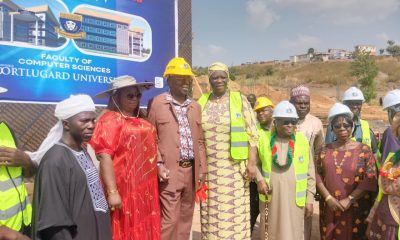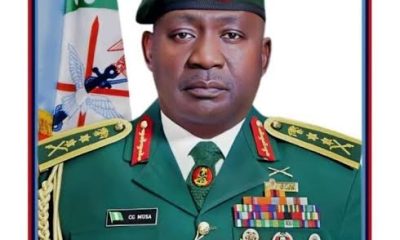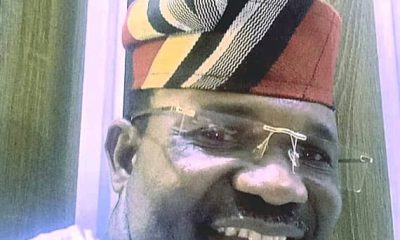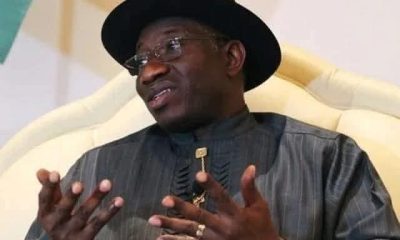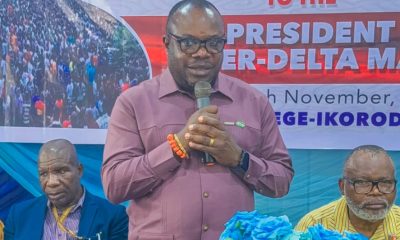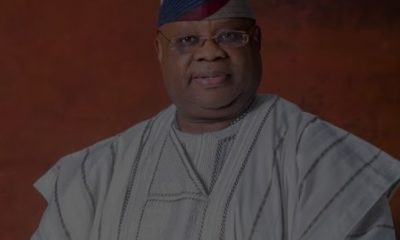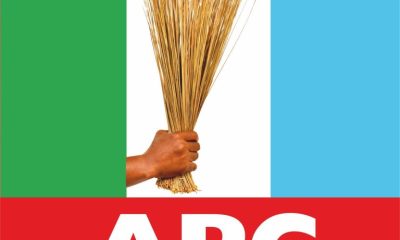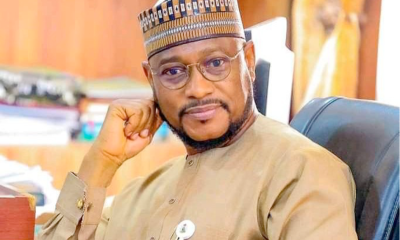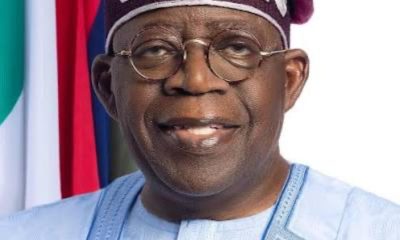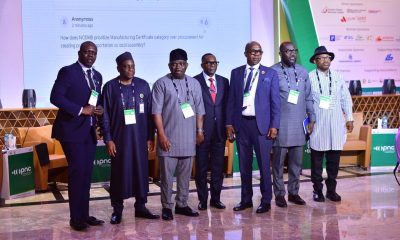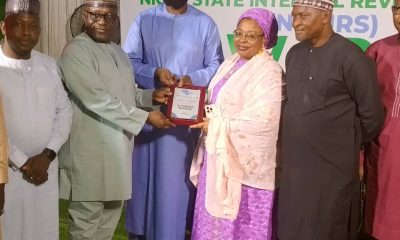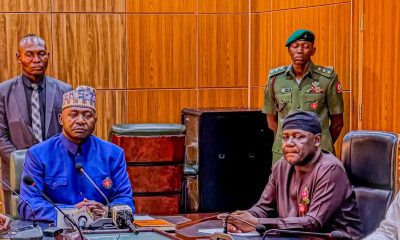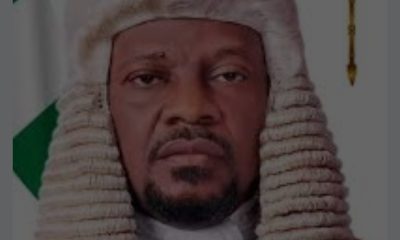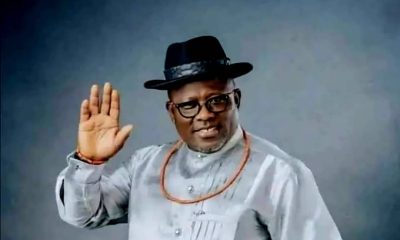Politics
Turn Jonathan’s Confab Report into a Referendum, give Nigeria a new Constitution- Chief Chekwas Okorie urges Tinubu
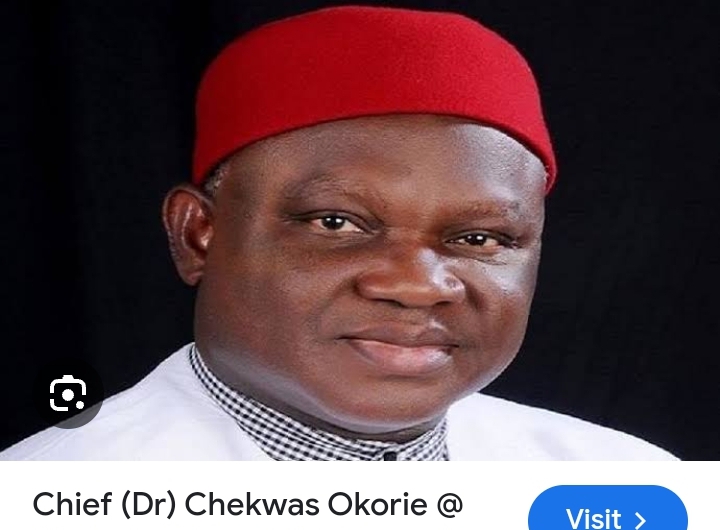
Chief Chekwas Okorie, popularly known as Ojeozi-Ndi Igbo and founder of All Progressive Grand Alliance ( APGA), has called on President Bola Ahmed Tinubu to dust up former President Goodluck Jonathan’s 2014 Confab Report and use an Executive Bill to secure a Referendum that will eventually become a new Constitution.
In this exclusive interview with IGNATIUS OKOROCHA, Chief Okorie speaks on the positive impact of the South East Development Commission, Restructuring, Need to release Nnamdi Kanu from detention among other issues of national importance.
Excerpt:
There are calls in some quarters for restructuring of this country. As a politician and elder statesman, do you see any wisdom in the clamour for restructuring of Nigeria?
There is wisdom in the clamour for restructuring of this country. If this nation is restructured, all the various states will develop at their own pace.
When the regions were developing at their own pace in the 90s, the Northern region used to have a budget of approximately £19million at that time. The budget of Western Nigeria was about £12 million. The budget of Eastern region was £9 million but because we were developing at our own pace, Dr Michael Okpara’s administration came with all manner of innovations to booste the economy of Eastern region and within a couple of years, the Eastern region became the fastest growing third World economy. We over took all the other regions because, we were not depending on any center to find us means of sustenance. Every state in Nigeria has what it takes to be prosperous but because you have not challenged them to do that, they just sit down and at the end of the month, they come to Abuja, collect allocations and go and share and do nothing.
It is a restructured economy that will bring us back to the part of growth.
The clamour for restructuring of Nigeria has been coming up in the past administrations and our leaders didn’t take it seriously. The question is, why has our leaders not taking it seriously?
It is not the government that is not willing to take it up but the fact remains that there are some things that our leaders are afraid of. There are people who are just parasites and they control the major resources of government. So, they don’t want to let go, so that those who can manage this economy can take it up. They think that some people can overtake them and leave them behind but if you are holding somebody down, you are holding yourself down. If you want to move, you need to leave that person you are holding to move and when you leave him, you will also move. So, we are just holding ourselves down.
You see, this our structure wasn’t like this before, Some people sat down ( military men coming from the North and Northern political class) to give us this 1919 Constitution which is very obnoxious and took about 65 items out of the constitution some of which could have been in the residual list which resides with the local government level or concurrent list but they put it in the exclusive list. In other words, at the control of Federal government ( centre) and that was why it was easy for them to remove the study of history from the nation’s Educational curriculum/institutions. Can you imagine the damage that has done to our children. That is why we have this kind of lopsided constitution. They also made it difficult to amend the constitution. That is why over the years, we have tried to amend our constitution to give local government autonomy to the third tier of government and that is why they placed obstacles that would hinder its success. This is why even when the two Houses of National Assembly seem to agree to pass the Bill, it will require the concurrence of two third of the states Assembly before that portion of the constitution would be amended.
Now, where do we have majority of the states. They created 19 states in the North, created 17 in the South and gave Abuja which they are aware, belongs to them the status of a state. So, once they have the 19 Northern states representatives in the various Parliaments agree on an issue, where will you have the remaining number to counter what they have agreed.
Another thing they did was that they created 774 local governments areas in the country with the Northwest alone having 188 local government Areas; Southeast has only 95 LGAs and the rest distributed among the remaining geopolitical zones. A quick glance at these figures shows that SouthEast has the least LGAs. NorthEast has the highest Local government. Local government is a factor in revenue allocation. Landmass, including deserts area are factors being considered in revenue allocation.
Population that they have never allowed to be conducted in a free and fair sincere credible manner is a major factor in revenue allocation.
All of these things will be going on to only one side.Most of the items in the exclusive list in the constitution ought not to be there. But now, you have revenue from VAT coming to the centre and if you are paying VAT on alcohol and they don’t drink alcohol in the Muslim dominated states in the North. If you drink it, they will destroy it and imprison you but they will get the lion share of the revenue from the VAT you are paying for consumption of alcohol.
So, when you look at the injustice going on in Nigeria, it doesn’t make anyone feel that Nigeria belongs to all of us. That sense of patriotism is immediately destroyed.How can this kind of people that have had this kind of advantage allow restructuring to take place in Nigeria.
Are you calling for total review/ amendment of the 1919 constitution or an outright rejection of the constitution to pave way for a new constitution?
What is restructuring all about? Former President Goodluck Jonathan convoked a National Conference in 2014 and delegates were selected from across board.
Over 600 delegates from different parts of the country including Institutions were in attendance.They met for the first time. Nigerians agreed on the way to live together by consensus. Over Six hundred resolutions were made and passed. That conference also produced a draft constitution that incorporated all the recommendations that were made. Some of the them can be implemented administratively and some of them will be by constitution amendment. All these things were handed back to President Jonathan.
That conference cost Nigeria about N7billion at that time. If you extrapolate it, you are looking at approximately N30billion now.That is what it cost Nigeria. Unfortunately, President Jonathan lacked the courage to enact into law the document his government sponsored because of threat from one section of the country and he believed that if he enacted it into law, he may not win the second term election.
He felt it would be better to wait until after the election. So, those documents stayed there until he lost that election.
When President Muhammad Buhari came into office in 2015, the first statement he made was that he would not touch that document containing Confab recommendations even with a long spoon. He didn’t touch it and you can see the kind of nepotism, the kind of sectionalism, the kind of lopsidedness even in the allocation of federal resources to implement what is agreed in the budget passed by the National Assembly under President Buhari.
Now that we have a President that was one of us in the struggle for true federalism, he was one of the foot soldiers, he was one of those who sponsored and paid high price for it and
now luckily he is the President of Nigeria.
Now what is your advice to President Tinubu on the way forward?
My advice is that because the country doesn’t have money to go and start a fresh conference, he should dust up what has been recommended by 2014 Constitution Conference.It is there, set up a small committee of credible Nigerians. He could select few individuals from each of the six geopolitical zones in the country to review those recommendations because society is dynamic and a few things may have changed and bring it back. Again while that is going on he could use an Executive Bill to secure a Referendum and put it in our constitution because we don’t have a Referendum and it is only through Referendum that such things can be passed without going through the rigmarole of the National Assembly and 36 states Assembly.
The National Assembly will pass it and we now have a new constitution. Nigeria will experience an exporantial growth and people will know where their problems are coming from and deal with them. How many people in America know that the name of their President is Joe Biden.They know their governors more than their President. Its only the elite in America that know that something happens in Washington. Local government people know their chairmen more than their governors because whatever problem that comes up, they take it to the chairman of that local government Area because the third tier of government is the closest to the people.
A couple of weeks ago President Bola Tinubu signed into law the SouthEast and Northwest Development Commissions.What positive impact are we expecting from the establishment of South East development commission?
I am so emotional about the new law because our former Head of state, General Yakubu Gowon in order to please the western government who supported Nigeria to defeat Biafra made him to come up with that policy of no victor no vanquish. It was good for the ear but we know that there is no Victor and there is no vanquish. Then he came up again with the policy of reconstruction, reconciliation and rehabilitation. That the the three Rs, it was never implemented. From the time Gowon finished and others continued, from 1970 the war ended to now that we are discussing here, there is no single project started and completed by Nigeria government in the whole of the South East. Not one. If you count second Niger bridge, it is not even completed but that one at least, some people can drive on the one side of it. So, you discover that when the war ended, the war continued by other means. Those who fought the war on the other side, simply removed their kaki and put on Agbada and continued the war through all of these things I mentioned here.
So, a young man called Hon Chuka Onyema from Ogbaru federal constituency of Anambra state, introduced this Bill in 2017 and those who had majority representation in the National Assembly made sure it did not survive the second reading. But under President Tinubu, our own Rt Hon Benjamin Kalu,,( Deputy Speaker) resuscitated the Bill, improved on it and with improved lobbying, it was given expeditious passage in the House of Representative and with the Senate President coming from the upper chamber, it became easy for the Senate to give an urgent concurrence to it. By the time it was given to the President, it didn’t take much time for it to pass through the ministry of defence to dot the Is and Ts and the President signed it into law.
That is why I said, I am emotional about it because the major content of that Act is to address all the infrastructural and the developmental deficit arising from that war. So, this is just happening after 54 years federal government is going to devote federal government money to address infrastructural deficit in the South East. South East has the highest erosion mance in the whole country and so many other things. That is one of the things that at times, I am charitable when I speak about Tinubu.
All I keep saying is that let there be an honest and sincere funding of the commission so that it can carry out it’s mandate. That commission has room for other sources of investment. Once government has given that impetus, Igbo people will take it up from there and you won’t recognize ala-Igbo after a few years. So, it is something I commend.
While we appreciate Federal government’s efforts in creating the commission, do you foresee a political undertone in the creation of all these development Commissions in the Six geopolitical zones in the country with the establishment of North-East, Northwest and South-East Development Commissions as we await the creation of Southwest and North-central commissions?
Well, you can’t rule out politics out of it but in the case of the South East, the zone is the oldest and it is almost about the last to be accorded a commission. It is something that would have been done since 1970 but I do not have anything against the other geopolitical zones having their commission. It is what you do with the commission that matters. You will see what we will do with our own commission. It was the government of former President Olusegun Obasanjo that actually liberalized the power projects and that was when Prof Bath Nnaji started what you now know as geometrics power projects.Other people could have keyed into it but for some legal matters that arose that delayed the project. Today we are having Aba industrial zone. It is made up of nine local government areas out of 17. About nine local government areas are leaving steady power now. Aba in particular is having 24 hour power projects and it is a private investments. You go to Imo state by 2025 the entire Imo state will have 24 hours power projects. It is almost getting completed. In the same Imo state, the government simply approved the dredging of the Ugwuta lake. Businessmen came into the state and governor Hope Uzodimma championed it and before you know it goods will now be coming into Ugwuta from the high sea. So, give everybody their own commission if they so desire. What they do with it is their business. We know what we want to do with our own.
Mazi Nnamdi Kanu has been in detention for a couple of years now. Is there nothing that can be done to secure his release from president Tinubu?
There is something that could be done and that thing that can be done is within the powers of the President or even former President Buhari but he didn’t do it. He refused to look at it. He took the issue of Nnamdi Kanu personal but I have advocated that the President has special presidential dispensation to pardon. The president can direct the ministry of justice to enter a nolly prosecco on Nnamdi Kanu and he will be released unconditionally. This president has been a beneficiary of nolly prosecco You know why, when President Jonathan was in power, Tinubu was saddled with several accusations bothering on all what not and he was charged to the Code of conduct Tribunal. It was President Jonathan that granted him special presidential dispensation to direct the ministry of Justice to enter nolly prosecco that got Tinubu out of the trouble.if they had gone the way of our past government and indicted and found him guilty, wouldn’t have been qualified to run for Presidency.
So, President Tinubu is a beneficiary of that process and every caliber of Igbo people has spoken. Be it small, old or big and through our late leader, Chief Emmanuel Iwuanyanwu. He spoke the minds of the Ndigbos and requested and appealed to the government to release Nnamdi Kanu and that it will help us to restore peace in the South East because nothing can happen where there is no peace.
Let me add an additional appeal. Yes I have seen that the President has commiserated with the Ndigbos and the family of Chief Iwuanyanwu but the greatest condolence that President Tinubu will give to that family and Ndigbo in general is to cease this solemn occasion of Chief Iwuanyanwu’s death to grant that which he requested and was not given to him in his lifetime by releasing Nnamdi Kanu. If that is done I can assure you that everybody knows that chief Iwuanyanwu will return from his gravesite with smiles.
Politics
Rivers Assembly Speaker, 16 others dump PDP for APC
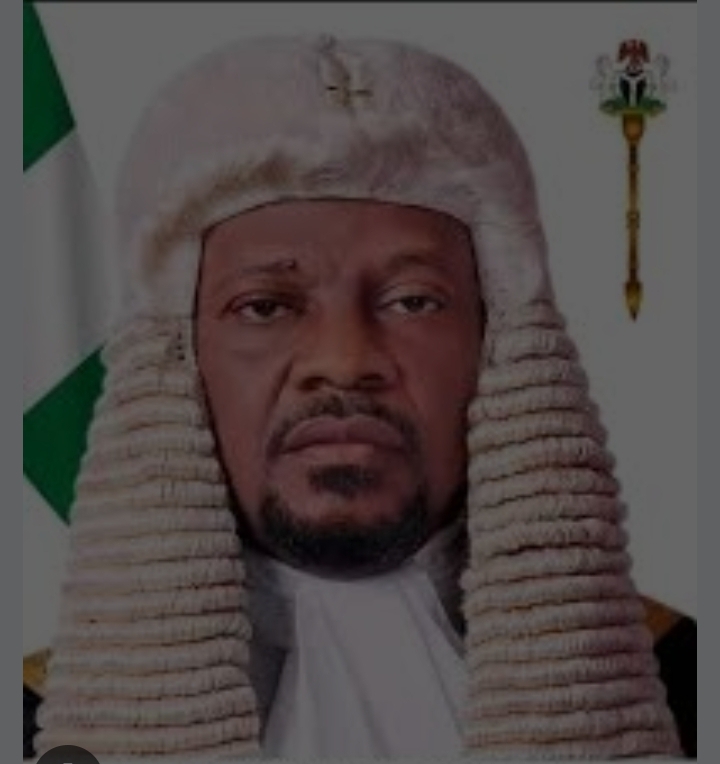
By Our Correspondent
Seventeen members of the 10th Rivers State House of Assembly, on Friday, defected from the Peoples Democratic Party (PDP) to the All Progressive Congress (APC).
The lawmakers announced their defection during plenary on Friday, December 5, 2025 at the Auditorium of the Assembly quarters currently used as the hallowed chambers.
The defected lawmakers, led by Speaker of the House, Martin Amaehwule, cited the division in the PDP at the national level as the reason for their defection, noting that the situation has made the future of the party “hazy and nebulous”.
Among the lawmakers who defected to the All Progressive Congress were; the Speaker, Martin Amaewhule, Deputy Speaker, Dumle Maol, Majority Leader, Major Jack, Deputy Majority Leader, Linda Somiari- Stewart, Chief Whip, Hon. Frankline Nwabuchi, and the Deputy Whip, Hon. Ofiks Kabang.
Others are; Hon. Peter Abbey, Smart Adoki, Igwe Aforji, Arnold Davids, Enemi George, Tekenari Granville, Christian Nwankwo, Gerald Oforji, Azeru Opara, Lolo Opuende, and Hon. Solomon Wami.
Recall that the Speaker, Martin Amaehwule had in December 2023, in the heat of the over two years political crisis in the state, led all 27 members of the Assembly loyal to the FCT Minister to the APC but later denied their defection, and returned to the PDP.
Meanwhile, the PDP which is now the minority party in the House with 9 members, has constituted their officers with Hon. Sylvanus Nwankwo emerging the Minority Leader, Hon. Barile Nwakoh was elected Deputy Minority Leader, Hon. John Dominic Iderima, Minority Whip, and Hon. Justina Emeji, Deputy Minority Whip.
The Assembly has also renewed its earlier call on the State Governor, Sir Siminalayi Fubara to forward his list of Commissioner-nominees to the House for screening and confirmation in line with the 1999 Constitution; regretting that “the State is yet to have the complement of a full cabinet.”
The Assembly also reaffirmed its earlier resolution made on the 14th of December, 2023, and adopted the auditorium at the State House of Assembly quarters as its legitimate and lawful Chamber for the conduct of legislative businesses for the life of the Tenth Assembly of the State.
Speaker of the Assembly, Martin Amaehwule in his speech lauded President Bola Tinubu for his purposeful and exceptional leadership and pledged their support to the APC and the President.
Politics
Sulu – Gambari , Ita Enang , Dambazzau , Ibas Ibok -Ete, 61 others make Tinubu’s Ambassadorial list
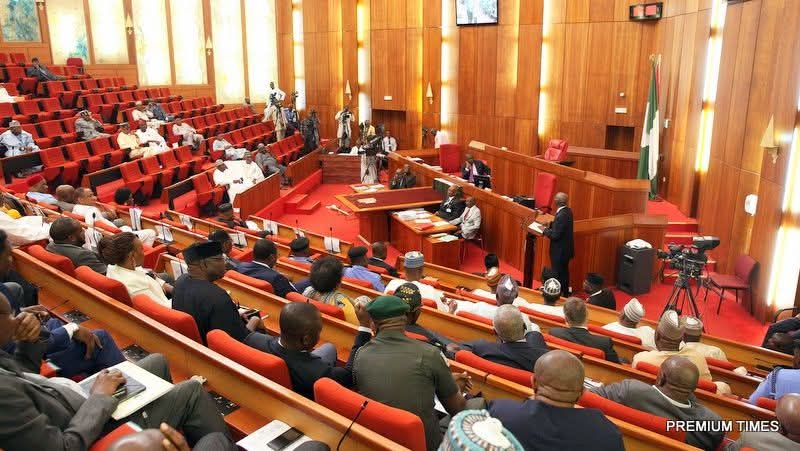
By George Mgbeleke
The Senate Thursday received requests for confirmation of nominations of 65 Ambassadorial nominees from President Bola Ahmed Tinubu.
The nominees as read from two different lists by the President of the Senate , Godswill Akpabio during plenary, fell into two categories of 34 Career Ambassadors and High Commissioners and 31 Non – Career Ambassadors and High Commissioners designate .
Notable names among the 34 Carrer Ambassadors and High Commissioners are Ambassador Sulu – Gambari Olatunji Ahmed from Kwara State , Ambassador Ahmed Mohammed Monguno from Borno State , Ambassador
Maimuna Ibrahim from Adamawa State etc .
Notable in the list of Non Career Ambassadors and High Commissioners are Senator Solomon Ita Enang from Akwa Ibom State , Vice Admiral Ibas Ibok – Ete from Cross River State , Ex Chief of Army Staff, Abdulrahaman Dambazzau from Kano etc .
President Tinubu in the requests hinged on section 171 sub section 1, 2 and 4 of the 1999 Constitution , sought for expeditious consideration of the nominees .
Accordingly, the President of the Senate, forwarded the requests to the committee on Foreign affairs for screening and report back within one week .
Recall that President Tinubu had earlier forwarded to the Senate , three ambassadorial nominees last week for appointment confirmation .
The three earlier nominees , namely
Kayode Are ( Ogun State), Aminu Dalhatu ( Jigawa) and Ayodele Oke ( Oyo State ), were screened on Wednesday by Senator Abubakar Sani Bello ( Niger North ) led committee .
Full list of the Ambassadorial nominees per state reads : ” Ambassador Ezenwa Chukwuemeka ( Abia ) Maimuna Ibrahim ( Adamawa ), Monica Ogochukwu ( Anambra) ,
Ambassador Mohammed Mahmoud Lele ( Bauchi) ,
Endoni Sindo ( Bayelsa) and Ambassador Ahmed Mohammed Minguno ( Borno ) .
Others are Jane Adams Okon Michael ( Cross River ), Clark Omeruo Alexandra ( Delta ), Chimma Geofrey Davies ( Ebonyi) ,
Oduma Yvonne Ehinose ( Edo State ), Wasa Segun Ige ( Edo State )
Ambassador Adeyemi Adebayo Emmanuel ( Ekiti ), Ambassador Onaga Ogechukwu Kingsley ( Enugu ) and
Magaji Umar ( Jigawa) .
Other nominees in the category of Career Ambassadors are
Mohammed Saidu Dahiru ( Kaduna ) ,
AbdulSalam Abus Zayat ( kano) ,
Shehu Barde ( Katsina ) , Aminu Nasiu ( Katsina ),
Abubakar Musa Musa ( Kebbi) ,Mohammed Idris ( Kebbi) ,
Bako Adamu Umar ( Kogi ) ,
Sulu Gambari Olatunji Ahmed ( Kwara ),
Ramata Mohammed ( Lagos ), Shaga John Shama ( Nasarawa )
Salau Hamza Mohammed ( Niger ) and Ibrahim Danlami ( Niger ) .
Others are
Adeola Ibrahim Mopelola ( Ogun) ,
Ruben Abimbola Samuel ( Ondo),
Akande Wahab Adekola ( Osun) ,
Adedokun Esther ( Oyo) ,
Gedagi Joseph John ( Plateau ) ,
Luther Obomode Ayokalata ( Rivers ),
Danladi Yakubu Yaku ( Taraba ) and
Bello Dogondaji ( ( Zamfara ) .
Names on the list of the 31 Non – career ambassadorial nominees are
Senator Grace Bent ( Adamawa ) , Senator Eta Enang ( Akwa – Ibom),
Nkechi Linda Okocha ( Anambra ),
Mahmud Yakubu ( Bauchi )
Philip K. Ikurusi ( Bayelsa ) ,
Paul Oga Adikwu ( Benue ),
Vice Admiral Ibok-Ette Ibas rtd ( Cross River ),
Hon. Abasi Braimah ( Edo ) and
Erelu Angela Adebayo Ekiti )
Others are Barrister Olumilua Oluwayimika Ayotunwa ( Ekiti ),
Rt. Hon. Ifeanyi Ugwuanyi ( Enugu State ) ,
Barr. Mrs. Chioma Ohakim ( Imo State ),
Lt. Gen. Abdulrahman Bello Dambazau (rtd.) ( Kano State ),
Hon. Tasiu Musa Maigari ( Katsina ) ,
Alhaji Abubakar Sanusi Aliyu ( Kogi) and
Olufemi Pedro ( Lagos State ) .
Others are
Barr. Mohammed Ubandoma Aliyu ( Nasarawa ),
Senator Jimoh Ibrahim ( Ondo), Ambassador Joseph Sola Iji ( Ondo ),
Fani-Kayode ( Osun ) , Professor O. Adewole ( Osun) , Florence Ajimobi ( Oyo ), Lola Akande ( Oyo), Professor Nora Ladi Daduut ( Plateau) , Yakubu N. Gambo ( Plateau ) , Chukwujinka Okocha ( Rivers ) , Haruna Abubakar ( Sokoto ) , Rt Hon Jerry Samuel Manwe ( Taraba ) and Adamu Garba Talba Nangree ( Yobe State ) .
Politics
Kano Guberpoll: Former LG chairmen adopt Sen Barau as APC’s sole candidate for 2027

By George Mgbeleke
Former local government chairmen in Kano State have adopted the Deputy President of the Senate, Senator Barau I. Jibrin, as the sole candidate of the All Progressives Congress (APC) for the 2027 governorship race in the state.
The former LG chairmen who served between 2019 and 2022, during the era of Dr Abdullahi Umar Ganduje as Governor of the state, adopted Senator Barau during a courtesy call to the National Assembly in Abuja on Wednesday.
A motion for the adoption of Senator Barau was moved by the former chairman of Rimin Gado Local Government Area, Barrister Dahiru Mannir Maigari, and seconded by the former chairman of the Association of Local Government of Nigeria (ALGON) in the state, Hon. Baffa Mohammed Takai.
When the former chairman of Madobi LGA, Alhaji Mohammed Yahaya, put the vote, all the former chairmen unanimously approved it through a voice vote.
Two members of the Kano State House of Assembly, Hon Zubairu Hamza Masu (Sumaila) and Hon Garba Yau Gwarmai (Tsanyawa/Ghari), witnessed the event.
A statement by the Special Adviser to the Deputy President of the Senate on Media and Publicity, Malam Ismail Mudashir, said that after the voice vote, the local government chairmen appealed to Senator Barau to declare for the governorship race as soon as possible.
Former chairman of Gwale LGA. Alhaji Khalid Ishak Diso informed the Deputy President of the Senate that the people of Kano, especially at the grassroots level, are eagerly awaiting his declaration for the race.
” Kano people are waiting for you to declare for the governorship race. We recently organised an event, where we asked you to declare. You are yet to. The people of Kano are anxiously awaiting your declaration. When are you declaring? Please answer the call to serve our people,” he said.
Also, the former Chairman of ALGON, Baffa Mohammed Takai, who led his colleagues on the courtesy call, said they adopted Senator Barau in view of his outstanding performance in parliament, adding that his contributions to Kano’s development are immense.
” We are here to throw our weight behind you. We are 100 per cent with you. Insha’Allah, you will be the next governor of Kano State, come May 29, 2027. You have the capacity to address the challenges facing our state,” he said.
Responding, the Deputy President of the Senate thanked the former local government chairmen for their support, describing them as grassroots politicians.
“It’s indeed true that Kano was second to Lagos before, in terms of development, in terms of commerce and so on. Unfortunately, Kano is now trailing behind due to a lack of good leadership. Let us not live in denial. This is a fact that we must all work together to address in the interest of our people and state.
“I wish to assure you that by the grace of God, we will take bold steps to bring Kano back to its glorious days. We will succeed by the grace of God. We will always stand by the truth and for our people,” he said.
* Tsanyawa, Ghari stakeholders endorse Barau
Meanwhile, stakeholders from Tsanyawa and Ghari LGAs of Kano State have also thrown their weight behind Senator Barau’s candidature during their visit to him on Wednesday.
A member of the Kano State House of Assembly, Hon. Garba Yau Gwarmai, representing Tsanyawa/Ghari, moved the motion, which Hon. Aminu Yakanawa seconded. A thunderous ovation from over 100 stakeholders in attendance followed the announcement of the endorsement.
Yakanawa told the Deputy President of the Senate that the people of the two local government areas are solidly behind him.
” By the grace of Allah SWT, you are the next governor of Kano State. Our people are solidly behind you, and we are committed to supporting you,” he said
Responding, Senator Barau thanked them for the support, saying the massive support from all the people of the state is a signal of what will happen in 2027.
On the security challenges facing some parts of Tsanyawa and Shanono LGAs, he said, ” We are not leaving any stone unturned in tackling this challenge. We are working underground to bring an end to it. We have taken all the necessary steps. It is not something that we go to radio stations to announce.”
-

 Business & Economy4 months ago
Business & Economy4 months agoPC-NCG Issues Disclaimer on Purported Nigerian Coast Guard National Orientation Exercise In Anambra State
-

 Entertainment1 year ago
Entertainment1 year agoJubilation galore as Parishioners of CKC Kurudu celebrate their cultural heritage ….FG should exploit our Cultural heritage to unite Nigerians-Rev Fr Dim
-

 Law & Crime6 months ago
Law & Crime6 months agoICPC pledges to collaborate with FIDA to end Sex for Marks in tertiary institutions
-

 General News1 year ago
General News1 year agoCelebration galore as UDA Successfully Elected New Exco ……I will digitalize processes that will raise UDA to greater height -Comr. Okejiri
-

 General News2 years ago
General News2 years agoReps hold public hearing on FMC Ugwuaji Awkunanaw
-

 Law & Crime5 months ago
Law & Crime5 months agoLegal practitioner raises alarm over threat to his life by CSP Muhammed Abdulkareem
-

 General News1 year ago
General News1 year agoKugbo Hill Tragedy: Trailer Crushes Car, Kills Four and Injures Several Others in Abuja
-

 Politics3 months ago
Politics3 months agoASUU-NDU protest against FG loans, unpaid salaries,Non-Implementation of agreements …..says loans is generational slavery

